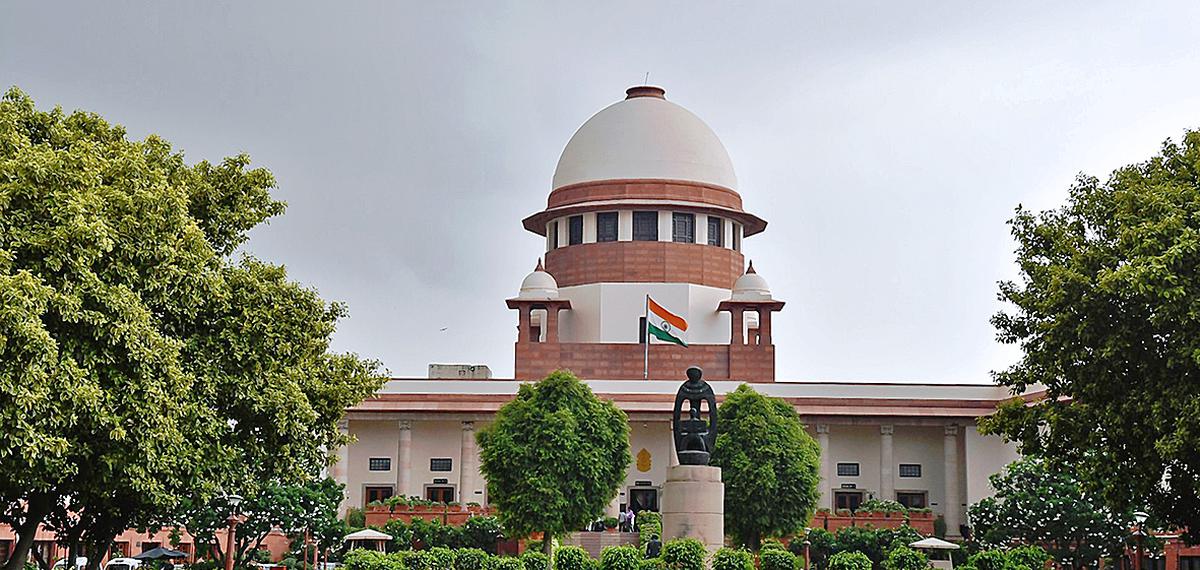New Delhi, Jul 2: The Supreme Court is all set to reopen on Monday after a 42-day summer break and will take up a batch of pleas related to the strife in Manipur and a petition by the sister of slain gangster-turned-politician Atiq Ahmad and Ashraf seeking constitution of a commission to inquire into their “extra judicial deaths”.
Several vacation benches in the summer break took up for hearing over 2,000 cases, including bail plea of social activist Teesta Setalvad, and disposed of over 700 cases, according to sources.
In a special late-night hearing on Saturday, a rarity on holidays and during vacations, a top court bench of three judges headed by Justice Gavai protected Setalvad from arrest and stayed for a week the Gujarat High Court order rejecting her plea for regular bail and asking her to surrender immediately in a case of alleged fabrication of evidence to frame innocent people in 2002 post-Godhra riot cases.
The three-judge bench heard the matter in a special sitting after a two-judge vacation bench differed on granting interim protection from arrest to Setalvad, earlier in the day.
During the summer break, the strength of the judges in the Supreme Court came down to 31 with the retirement of three senior judges — Justice KM Joseph, Justice Ajay Rastogi and Justice V Ramasubramanian — who superannuated on June 16, June 17 and June 29 respectively.
The sanctioned strength of the Supreme Court is 34 judges. With the retirement of Justices Joseph and Rastogi, the composition of the five-member collegium headed by Chief Justice DY Chandrachud has changed and two senior judges Justice BR Gavai and Surya Kant have been included in it.
Another senior judge Justice Krishna Murari is set to demit office on July 8.
The foremost task of the newly revamped five-member collegium will be to fill up the vacancies which have arisen due to retirement of judges.
On Monday, the top court bench headed by CJI Chandrachud will hear a batch of pleas related to Manipur violence, including a petition of an NGO seeking Army protection for the minority Kuki tribals in Manipur, and prosecution of communal groups attacking them.
The top court will also take up for hearing a PIL seeking framing of guidelines to deal with suicide by married men subjected to domestic violence and constitution of a ‘National Commission for Men’ to safeguard their interests.
With the retirement of judges, the top court has also come out with a fresh roster for allocation of new cases to 15 benches effective from July 3 and the first three courts presided over by the CJI and the two senior-most judges respectively will hear PILs.
The top court has also notified fresh procedure to be adopted by the CJI for mentioning of cases for their urgent listing and hearing from July 3.
The apex court is also scheduled to pronounce verdict on a batch of pleas relating to the issue of same-sex marriage, order of which was reserved on May 11 after ten days of marathon hearing.
It has also set up a fresh five-judge Constitution bench headed by the CJI which would hear four cases starting from July 12.
Besides the CJI, the Constitution bench would include Justices Hrishikesh Roy, P S Narasimha, Pankaj Mithal and Manoj Misra and would take up four cases, including one relating to a legal question — whether the state instrumentalities can change eligibility rules after a selection process for a public employment has begun.
Other important issues like validity of electoral bonds scheme, abrogation of Article 370 of the Constitution, challenge to remission granted to 11 convicts in Bilkis Bano cases, which are pending for quite some time will also be taken up for hearing in the coming days. (Agencies)
Trending Now
E-Paper


